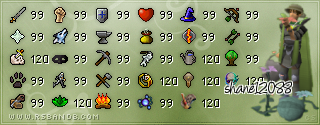1. How we got here?
Well for this one it starts off with the big bang. Then from here you get galaxies then stars and planets. The LHC as discussed in other topics will tell us what happened in the seconds following t=0. The universe is still expanding and will probably continue to do so for a long time. I've heard of some theories that say eventually it will collapse in on itself and then start over, each time it does that it's re-created with a new set of parameters. Other theories involve multiple universes, but this is straying into physics

As for stars, they all start out as nebulae. From there the nebula starts to collapse in on itself creating a star and leaves a ring of debris around it. From there the debris starts to collect together. forming rocks, then planetesimals, then planets. The planets then clear their orbit of debris. It's thought that Earth was once like Venus, however not as hot. So therefore we don't have the runaway greenhouse effect that Venus has. All the planets were primarily composed of Hydrogen, but as you know as a molecule gets hotter it's really moving faster, so the inner planet's Hydrogen atoms were blown away into space. The Jovian planets (Jupiter, Saturn, Uranus, and Neptune) have been able to keep their Hydrogen atmospheres because it is much cooler in that section of the solar system. That's how planets and stars are formed.
As for life on planets, it started in the ocean. There's a whole sequence of events that happened here but in a nutshell it started with ameno-acids that were on earth or were brought here by a collision of another planetary body in Earth's existence. From there single celled lifeforms, then algae, then plants, etc... evolution takes its course here.
Now you say, why only here? Chances are it has happened in other solar systems but we can't see it. Our imaging techniques aren't that great. We've only discovered 150+ extra-solar planets and most of these are gas giants detected by the pull they exert on their parent star. A smaller planets pull isn't noticeable from this far away.
If you're interested in more of the star/solar system story I recommend taking a course at your local college that covers basic astronomy. If you want to know more about the universe take one on that as well. Finally for extra-dimensions and the whole what happened at t=0 astrophysics should be your major

2. Reason why?
- Explained above. There are theories as to how the variables worked and that every time there's a big bang the variables may be different. For example in other universes the Hydrogen atom may not be able to support it's own weight.
3. Death?
Death is as it is, the ceasing of life. Nothing after.
We've also journeyed into topics like this on various Update episodes most notably being Uncorked. (132?)






















